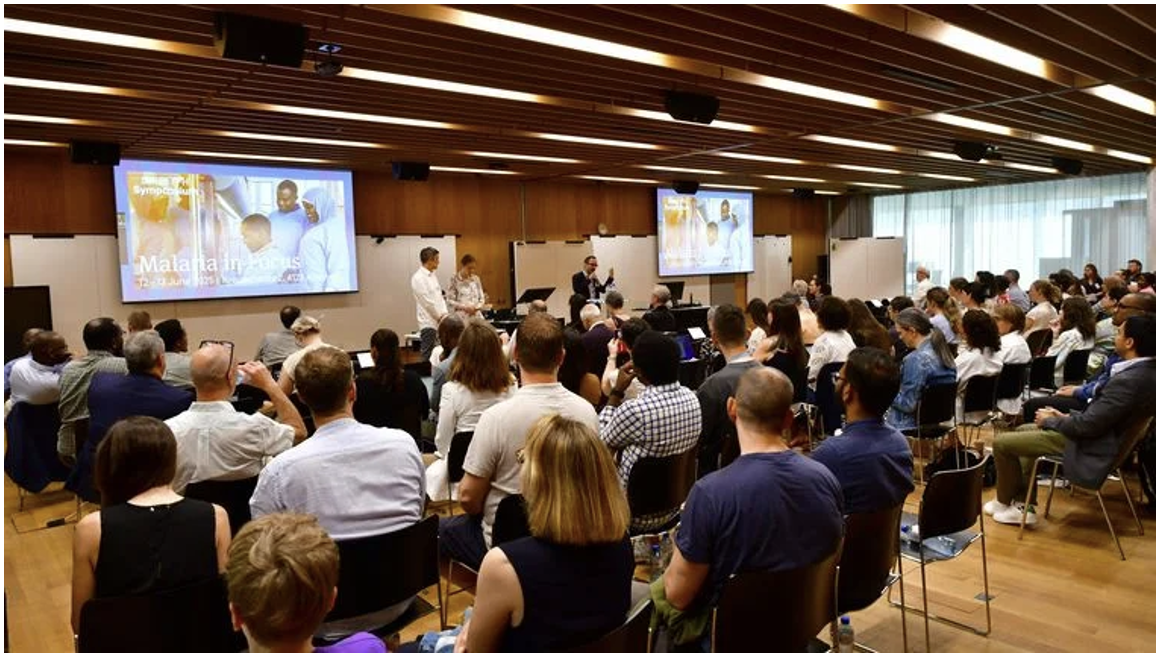
FORUM: Ifakara science director joins malaria experts at the Swiss TPH Symposium

On June 12, 2025, at the Swiss TPH Symposium in Switzerland, Dr. Ally Olotu, Director of Science at the Ifakara Health Institute, delivered a talk titled “Evolving Malaria Vaccine Landscape: Opportunities for Multistage Vaccines.”
Hosted by the Swiss Tropical and Public Health Institute (Swiss TPH) in Allschwil, Switzerland, the forum is themed: Malaria in Focus – From Research to Global Action.
Dr. Olotu explored the rapidly shifting landscape of malaria vaccine deployment. He began by reminding participants that the global malaria response is currently off track in meeting the Global Technical Strategy (GTS) milestones – a clear indication that new and improved tools, including effective vaccines, are urgently needed.
As more countries begin deploying the latest generation of malaria vaccines, Dr. Olotu emphasized the importance of robust surveillance systems, including molecular surveillance, to track the population-level impact of these tools. He also highlighted the need to monitor vaccine coverage, engage communities meaningfully, and ensure that innovations are integrated into local health systems.
Dr. Olotu discussed the potential of combining vaccine candidates to create multistage vaccines that target different phases of the malaria parasite's lifecycle. He outlined promising platform technologies to support this development, while also reflecting on the challenges of field testing next-generation vaccines and charting possible paths forward.
About the Swiss TPH Symposium
The two-day symposium, held in Allschwil near Basel, convenes around 200 international experts from academia, public health institutions, industry, and multilateral organizations. The programme spans a wide range of themes – from parasite biology and innovative mosquito control to vaccine and drug development, diagnostic tools, and modelling the impact of climate change on malaria transmission.
A key feature of the symposium is a high-level panel discussion involving leaders from the RBM Partnership to End Malaria, Ifakara Health Institute, Harvard University, Unitaid, and Swiss TPH. The panel focuses on how global partnerships in research and innovation can continue to deliver impact, even amid funding cuts and political uncertainty.
Ifakara is proud to have stood alongside leading experts at this important event, contributing to the global dialogue on advancing malaria control through innovation and collaboration. The Institute looks forward to continued engagement in research partnerships and knowledge exchange that drive progress toward a malaria-free world.
